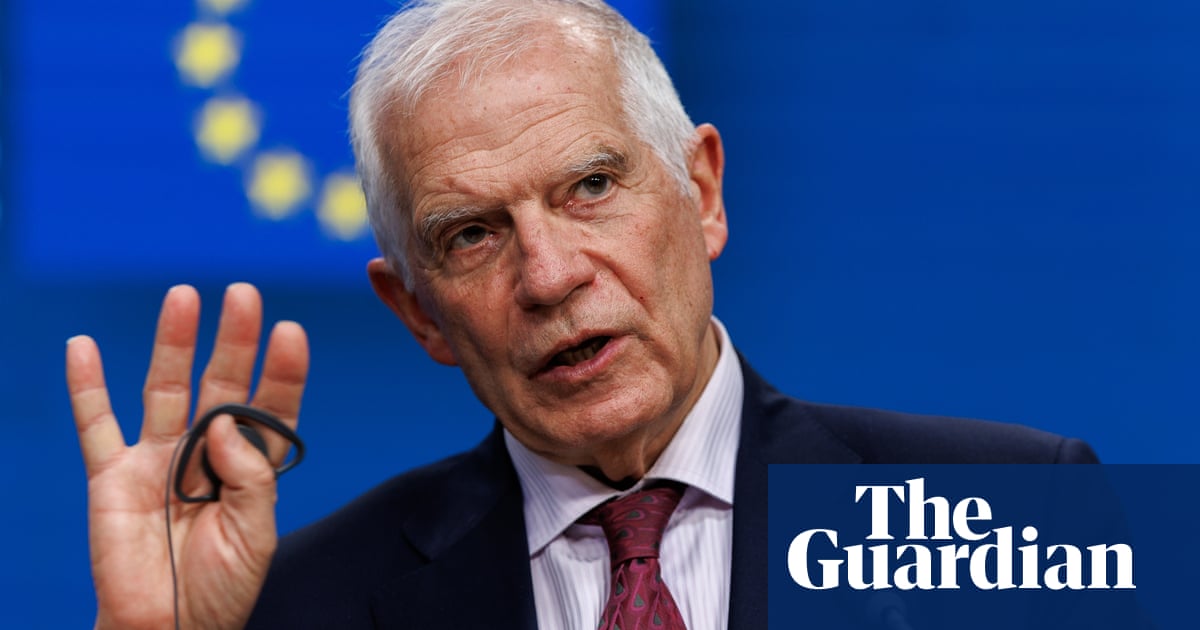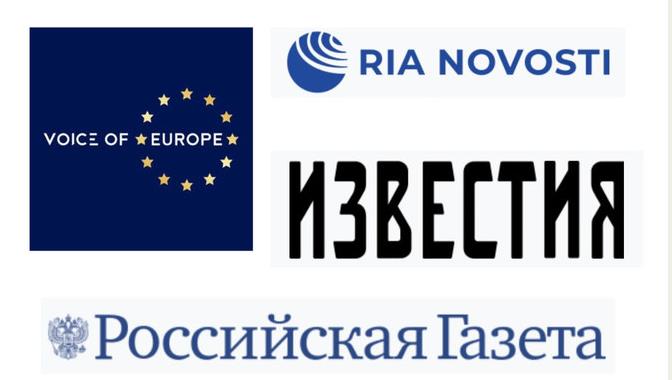
Disinformation attacks in 2023 targeted European democracy but also media outlets and LGBTQ+ organisations, and involved the malicious manipulation of the images and voices of celebrities such as Margot Robbie and Nicolas Cage, an EU report has concluded.
The research, the EU’s second annual disinformation report, lifts the lid on digital weaponry deployed to undermine Ukraine, but also to spread fake news during elections in Poland and Spain.
It studied more than 750 disinformation attacks involving the strategic spread of false stories and harassment of legitimate sources to reduce trust in public institutions and sow hatred against nations and groups of people.
This new “warfare”, said the EU’s chief diplomat, Josep Borrell, “does not involve bombs that kill you” but words and ideas that “colonise you”.
Researchers found that Ukraine was the most frequently attacked but 149 entities including media organisations such as Euronews, Reuters, Deutsche Welle and the New York Times and LGBTQ+ organisations were also targeted.
Among the digital weapons used to attack media and civil society groups were “bullying, harassment or threats” the report said. “The goal is not only to shape the global narratives, but also to suppress and silence dissenting voices,” it added.
Launching the report, Borrell cited a highly publicised incident in Paris after Hamas’s 7 October attack on Israel – which began the current Gaza war – when more than 200 Stars of David were found daubed on dozens of buildings.
Borrell said tensions in the wake of the incident in Paris had been amplified by more than 1,000 Russian bots that made 2,500 posts on social media attempting to spark division. “The Russian perpetrators identified a faultline in European society and exploited it,” he said.
He added that the World Economic Forum had ranked disinformation and propaganda – called “foreign information manipulations and interference” (Fimi) in the report – as “the second biggest risk the world is going to face this year”.
The report also investigated the cases of 59 targeted individuals including the Ukrainian president, Volodymyr Zelenskiy, his wife, Olena Zelenska, the French president, Emmanuel Macron, and Borrell.
Images and voices of celebrities including Elijah Wood, Cage, Robbie and the author Stephen King were also used maliciously to reach new audiences, the report said.
With about 2 billion voters in 83 elections around the globe going to the polls this year, the report homed in on two 2023 general elections, in Spain and Poland, to illustrate the tactics used by Russia and others.
The researcher said months before the summer election in Spain that ultimately saw Pedro Sánchez returned to power, an official account of the Kremlin on the Telegram messaging app suggested a long list of other Telegram accounts as sources of news and information. This was further promoted in official accounts with a network of fake accounts, building an organic and possibly unsuspecting audience.
With the ground laid, these channels were then put to use in the dissemination of fake news in Spain. Researchers describe a “swarming action”, a battlefield tactic, to saturate social media networks to undermine the credibility of the election with false information from the accounts that had been given a cloak of legitimacy on the Telegram promotion months earlier.
The Russian ecosystem was also then put to work to seed the idea that Spanish voters might not be safe, the researchers said.
Two days before the election, a warning of a possible attack by the former terrorist group Eta on election day was published on a cloned version of the Community of Madrid website. According to EU research, links were traced to private Russian Telegram users residing in Spain.
In Poland, the tightly fought election was also marred by disinformation, with Belarusian state-affiliated media creating Polish-language channels throughout the electoral period.
The fake information, including fake videos, was disseminated on X, formerly known as Twitter, with four accounts responsible for 70% of the amplification of the content.
Two days before the election there was also fake bomb news.
“Accounts belonging to the Russian Fimi infosphere presented the video in a reframed context, alleging that explosions had already occurred,” said the report.
In the 750 attacks investigated, 4,000 channels (websites and social media platforms) had been used, with election attacks prepared months in advance.
“Security is no longer a matter of weaponry, of army, it is a matter of information, how people get ideas and facts that will later determine how citizens will choose their governments,” said Borrell.
“Keep in mind that unchecked malicious content spreads like a cancer and puts the health of the democracy at risk, but we have the tools to fight against this.”












